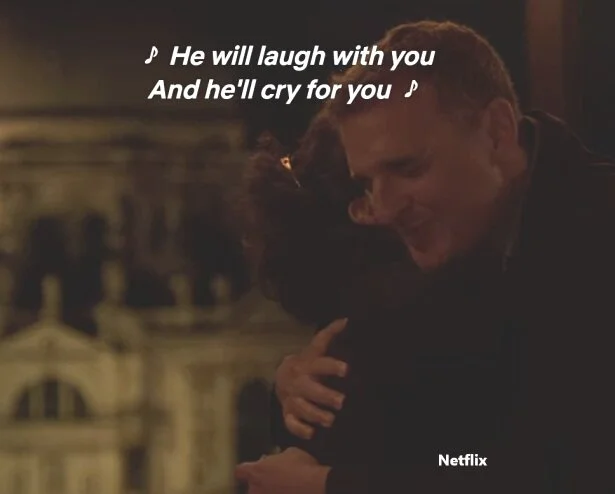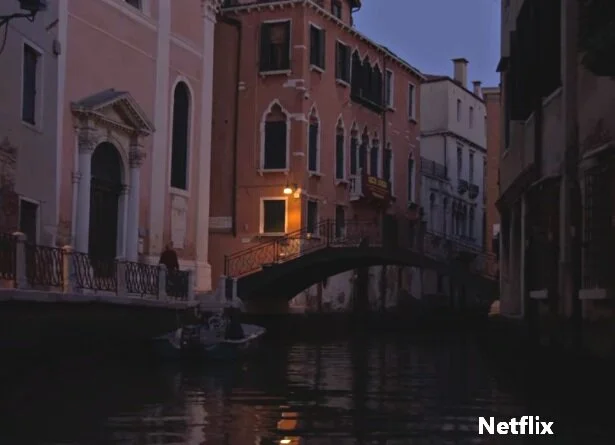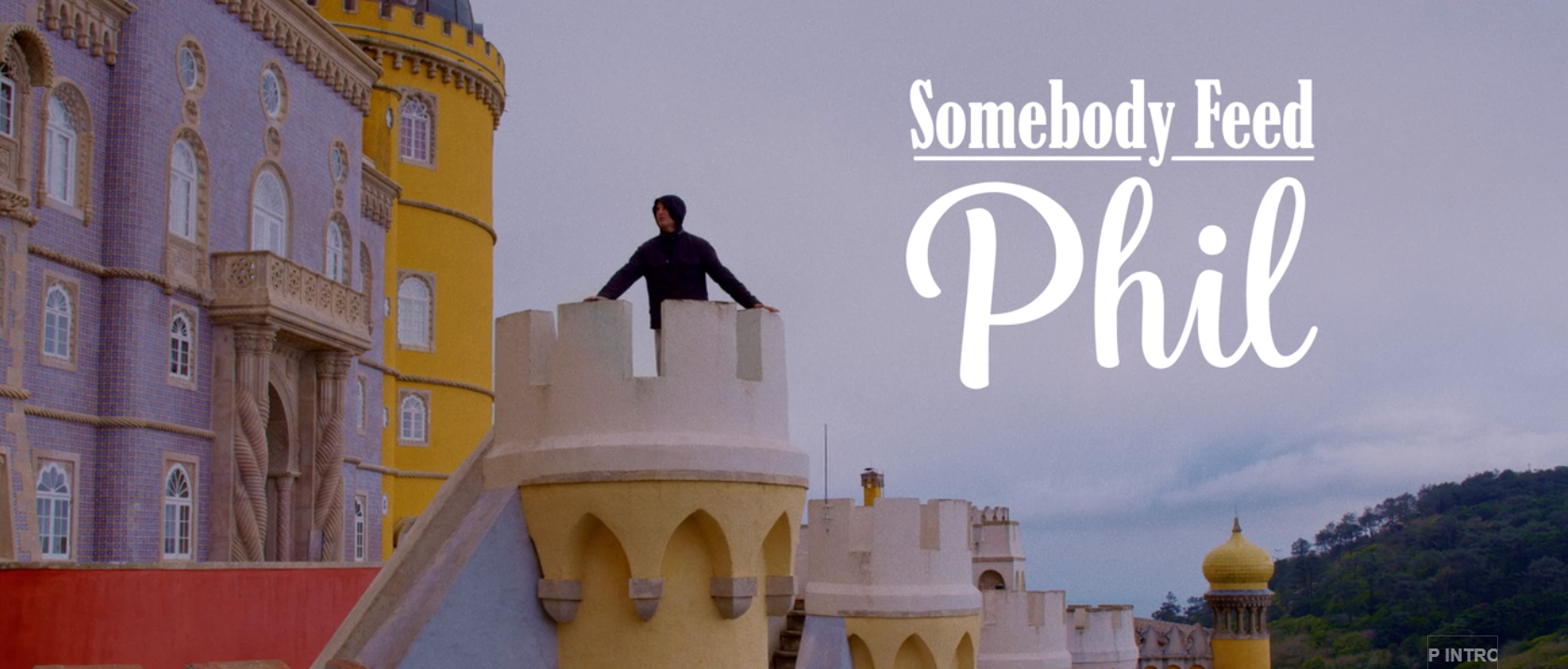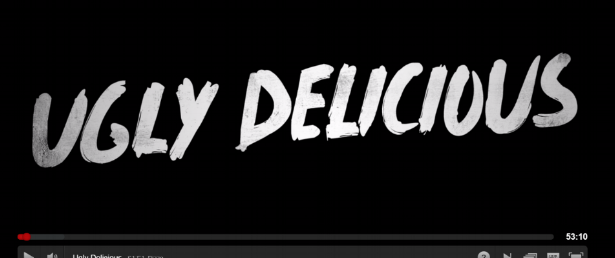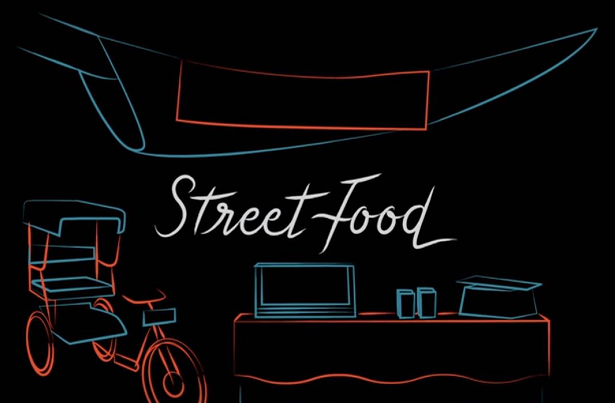Catastrophic Reviews: Somebody Feed Phil, seasons 2+3

Why hello there, and welcome back to Kitchen Catastrophes, where one man finally found the time to crassly crank out quick consumption of culinary content created by others, so he can critique and contextualize it for you. I’m your Cobbler of Cribbed Creativity, Jon O’Guin. And today’s post might go some weird places, but it’s my best attempt to unify the thoughts I’m having, in a somewhat timely and relevant manner. I hope it works, but if it doesn’t…well, that’s the advantage of this, innit? You can just pop off and roll back up next week for something new. SO: Somebody Feed Phil.
A Quick Re-Cap, and Context
If you didn’t read our first review: Somebody Feed Phil is a Netflix show about Phil Rosenthal, a genial television writer and producer, who somehow got himself a travelogue show about food. I say “somehow” because it’s one of the complaints more refined critics than myself had with the show: Phil is not a man deeply informed about food, or a lot of different cultures. He’s no Anthony Bourdain, a trained chef who can expound on various aspects of cooking. No trained food critic with insights into trends and norms. What he IS is an middle-aged Jewish man and trained comic writer who worked in LA for a long time, lives in New York, and has a lot of celebrity friends/the ability and training to get chefs and culinary minds to meet with him for his show. Phil himself really only serves as a kind of baseline viewpoint: someone to walk around and admire the beautiful things, react to the food he’s eating so you know if it’s good or not, crack the occasional joke/react emotionally to what’s being presented, etc etc. Hell, it’s explained IN THE theme song: He’s “trying to understand the art of pasta, pork, chicken, and lamb”, who will “sing for you, and dance for you, he will laugh with you, and cry for you” as long as you feed him.
“I will perform the emotional labor, as long as I am Fed” is a strange pitch, but one that feels weirdly appropriate given the times.
He is, essentially, a semi-blank slate for experiencing these cultures. (He’d be THRILLED to be called that, of course. Who doesn’t want to be called “blank”?) And I personally think that’s fine, thanks to what I think of the “Lee-niency Rule” …Alright, I actually think of it as “the Stan Lee thing”, but I wanted the name to be a little better. Apparently, it’s ACTUALLY called “the Stan Lee Principle”, which is a good middle ground between “explaining nothing” and “being a terrible pun that sears the eyes”.
What I ever-so-tragically was referring to is that Stan Lee used to have a saying: “Every comic book is somebody’s first”. It was a guiding principle for him in writing Marvel comics in the 60’s, 70’s, and 80’s, that every comic should have enough explanation in it so that if you picked it up, with NO prior knowledge, you should still be able to understand what’s going on. This is one of the reason older comic books have the heroes and villains explaining their plans, or what just happened, all the time. It ate up comic space, but it gave each reader enough information so you wouldn’t be FULLY lost.
Assuming you can read the small text, you have a relatively good idea of what’s going on.
Me, being a huge nerd, have a better guess , since I recognize the team comp and timing as being right before (maybe during) the Dark Phoenix Saga.
Phil positions himself, and the episodes of his show, as that kind of entry point. He really pitches his explanations and show to a fairly introductory level of understanding, to a sort of “generic middle class American family” audience. And I said ALL OF THIS, a little less concisely, in my review of the first season. But I want to revisit it, because I think there’s something valuable there that I didn’t mention/explore last time.
First is the skill with which this introduction is performed: there is some very deft work from him and his crew in really helping center/hook that crowd at each location. In season 2, he goes to Cape Town, the capital of South Africa, which are a city and a culture many Americans are likely unfamiliar with, excepting the rough concept of “Nelson Mandela” and “Things Trevor Noah has referenced”. So how is the city introduced?
With a sunrise shot like Pride Rock in the start of the Lion King?
The landscape. The beauty of the land is what you first see. From there, the show takes you to an Italian restaurant cooking game meats: so your first insight into the food is ostritch and antelope, but presented in a familiar setting: wine glasses, white tablecloths, an Italian chef talking about how “this place just didn’t have a really great Italian restaurant, so I started one”…you know, universal things. Then he goes to a corner deli-style shop to get sandwiches named after a famous American book, before getting into the racial history of the nation by eating with Nelson Mandela’s grandson and granddaughter-in-law, and talking about children with them.
That’s the big thing he’s always doing in the show: he centers the food, and the culture, on the people. And that’s valuable for two reasons, one of which I think has become more necessary. First, it gives us an “in” to understanding their food (and seeing Phil’s often exuberant reactions often tell us “even if it sounds weird, it really works”), and it gives us an in for recognizing their humanity. He de-others them. And in the same way that his introduction level approach to the food history and elements are not necessary to the more food-educated, so too is this kind of intro-level approach not ‘for’ the more race-conscious or globally minded. But remember that Stan Lee principle: every comic book is somebody’s first. In the same way, I do not denigrate Phil’s drive to see people around the world, hear their stories, and relate to them, and use their food as a touchstone. When a woman who escaped North Korea, fleeing her home, hiding for years, and traveling over 3,000 miles to get to Seoul, almost breaks down in joyous tears because she’s so excited that the restaurant they’re at made the type of dumplings her hometown was famous for…a town that she FLED, but still clearly holds an important place in her heart, I feel like it might speak to many who have foods connected to past traumas or dark times in their lives, that still bring them joy.
“Laughs in happiness” is a weirdly descriptive phrase for something that technically feels somewhat repetitive. Like, most people would assume that “happy” is the normal state of being when laughing. But “laughs in happiness” conveys a subtly, but beautifully distinct event.
And that ties into the other strength of the show, and one I want to touch on in a weird and somewhat somber way.
Hello Darkness My Old Friend
When I last discussed the show, the first season had just come out. And it actually got MORE comments than any other post I’ve made yet…ALL of them negative. One called Phil “Donald Trump’s stupid second cousin” and his behavior was “vomitous”, one said that I should not be allowed to access the internet if I’m too stupid to realize that Vietnamese food I try at a local shop will not be as good as the version made in Saigon. One guy showed up to have the “Jerusalem is the capital” One guy showed up a YEAR after everyone else to say how he wants to punch Phil, because he felt he was fake. And that’s fine. Well, it’s not fine, since I mean, your stance is “wow, I think this dude isn’t being genuine, I want to inflict physical harm on him”. But its’ the state of online discourse, and it kind of says something interesting: Phil is pretty damn relatable.
Like, think about those complaints: those are complaints that when they look at Phil, they see people they hate. (Except the dude bagging on me. I just wanted to highlight him because I love a good elitist burn.) He is a representative for those unpleasant forces. And that’s something of a legitimate thing to call him out for. Because as I just noted, Phil positioned himself as the sort of audience stand-in for a generic middle-class American family…but I left out a key word there: white. There is a level of Phil’s behavior that edges toward something of an “Ugly American” element, or, the “spent a week abroad and acts like they’re a native” sort of mentality. There’s a joke in the Marrakesh episode, where a man is selling him a treatment for sinus blocking, and he calls it “metal crystals”, which Phil jokingly asks to clarify: “Crystal Meth”? And the shop keep agrees, allowing Phil to mine a couple jokes out of “this man is trying to sell me crystal meth”. Which, when you know that the jar was almost certainly MENTHOL crystals, not “metal”, and the man was just struggling with a relatively uncommon word in a relatively uncommon language (Morocco’s official languages are French and Arabic, not English) the jokes can read as patronizing. But on the other hand, the show also frequently calls out when Phil screws up his attempts to speak French or Korean, and lets people riff on HIS ignorance and patronize him. It’s a sort of classic ‘it’s okay for me to crack a couple jokes about them, as long as other people crack jokes about me” understanding of equal treatment that, again, will connect with that generic middle class white family.
And, is it something of an easy joke to have Phil, an older man, climb the spire on the Church of Our Saviour in Copenhagen, immediately dismiss the experience, and walk away complaining that the show made him climb all those stairs? Sure.
There’s a fair bit of humor throughout the show mined from “Phil’s kind of a big baby”.
But I can tell you FROM EXPERIENCE that it’s very easy to ignore the important/breathtaking if you’re not in the proper headspace for it.. I watched the sunrise over Uluru (Ayer’s Rock) in Australia, and I can tell you while it was pretty, and quite possibly a once-in-a-lifetime experience, I can tell you that 16 year-old Jon was MUCH less into it, since, you know, ‘had to get up before sunrise to see the way the light hits a big rock’ isn’t how he would like to start the day.. We are not perfect guests, tourists, or even citizens. And I think that’s where some of that anger comes from: Phil reflects America well enough that we see some of our embarrassing flaws in him too.
And I, personally, see something more than that, especially now. This newest season was particularly relatable for me for a tragic reason. When I reviewed this show the first time, I brought up Anthony Bourdain and Stan Lee in the review, apropos of very little, just to make my point. Since that review, both men passed away, albeit in very different circumstances. Similarly, when I reviewed Season 1 of the show, it was February of 2018, a couple weeks before my father’s cancer came out of remission. He passed away before the second season came out. And I considered reviewing the second season for a while, but I didn’t know how to approach it: what do I say that I didn’t already cover? How do I maybe minimize the chance of similar abuse? So I let it slide, thinking I would wait, and maybe do some grand round-up of “shows I’ve reviewed that added new seasons”. But the instant we watched the first episode of season 3, I knew I had to talk about it.
I mean, his karate chop form is PERFECT.
Because every episode, Phil calls his parents (who are in their early 90’s), and shares what he’s seen, and some cool information about the city he’s in, and what he’s tried. But in that picture, it’s not Phil’s father and mother who answer the call, but his WIFE and father. And shortly into the conversation, his dad makes the statement “my wife would do that”. Which is how I, like many other fans of the show, learned that Phil’s mother passed away last October. (which also outs me as an imperfect fan, since he posted about it on his Instagram in October) And watching the whole season, it becomes even more relatable to me personally: an episode or so later, he’s in Chicago, and someone says “I’ll be 95 in December”. In London, someone chastises him “You came to London in October, and only wore that?” before grabbing him a shawl. Culminating in the last episode, where we see that the season at least started filming before her passing. And I don’t know exactly how he felt as he did the show. I can tell you there’s a little more emphasis on the connections being made, more efforts to bring groups of people together. But Phil had this loss, and kept going. And maybe you can believe he’s a good enough actor to maintain THIS level of “fake”ness, despite losing a loved one, but I can’t.
And maybe this is a stupid comparison. Maybe it’s even kind of a racist or problematic one. I accept that. But it’s late, and it sprang to mind. Because at its root, I’ve been arguing that what makes the show enjoyable is to see this playful guy introduce us to different cultures and people, through the window of food, to reveal our shared humanity. And what makes it more poignant for me, now, is how he and I now share a sort of solemn kinship in loss. A solemn kinship so many of us share in these dark times. And to deny him his reality, to refuse to see the people he talks to and their stories, because you do not like the messenger, is a kind of privilege and blindness. To paraphrase another problematic Jew trying to get audiences to see the humanity in people they might feel alienated from: Hath not a Phil hands, organs, dimensions, senses, affections, passions? Fed by the same food, hurt with the same sorrows, subject to the same diseases, healed by the same means, warmed and cooled by the same winter and summer as a Jonathan is?
Fun tie-in: they even GO to Venice in season 2!
Is the show perfect? No. I actually and honestly FORGOT the second season existed for a while. (or, rather, I jumbled the events of the two seasons into a kind of porridge that I thought of as one unit) But maybe that’s more about where I was, mentally, that summer, than the show’s quality. But it highlights a lot of great places, it pushes people to be accepting of foods they might turn their nose up at by showing you this New York Jew taking a bite, and lighting up like a kid at Christmas, It WANTS to make us more open and human to each other. And the world right now is SCREAMING that it needs that. So maybe it’s not perfect. But it’s trying, and if it works for even a FEW people as their first steps to seeing and accepting other cultures, I think it’s worth it. Hell, we kept the Merchant of Venice around for CENTURIES and that shit is WAY more problematic. So all I am saying is Give Phil a Chance.
MONDAY: PROBABLY SOME QUICK AND EASY NOODLES, UNLESS I CAN MOTIVATE MYSELF TO MAKE SOME COMPLICATED RECIPES THIS WEEKEND AND DRAG MY MORTAR AND PESTLE OUT OF THE STORAGE CLOSET THEY’RE BURIED IN.
THURSDAY: IF I MAKE THE COMPLICATED ONES, WE’LL TALK ABOUT A BOOK AND A RESTAURANT. IF NOT, I HAVE NO IDEA, I HAVE TO GO TO SLEEP RIGHT NOW, I HAVE TO BE LEAVING FOR A DOCTOR’S APPOINTMENT IN 12 HOURS, AND I WANT TO HAVE THIS UPLOADED BEFORE I GO.

